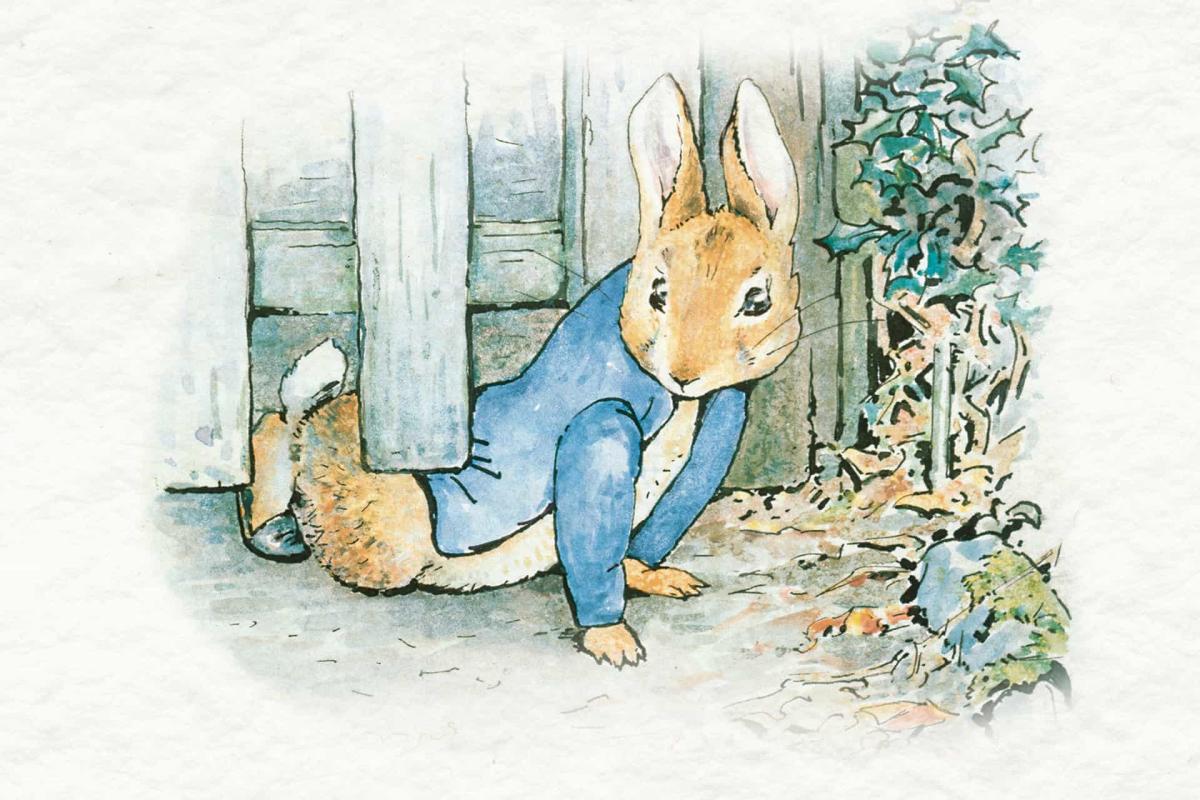On page 7 of The Tale of Peter Rabbit, Peter Rabbit squeezes under Mr. McGregor’s garden gate before indulging in the man’s vegetables.
Because Peter Rabbit is relatable to and easily understood by children, the audience better engages with the lessons presented to them. Why is Peter relatable? Although Peter is an animal, he is intelligent, even managing to outsmart Mr. McGregor, and Peter possesses many other humanlike traits. Peter’s character embodies the curiosity and mischievousness of children, which often results in children getting into trouble. As stated before, he disobeys his mother and sneaks into Mr. McGregor’s garden, tempted by the promise of vegetables inside. Perhaps Peter is influenced by the “forbidden fruit effect,” a psychological term for wanting something more if it is placed off-limits. Mr. McGregor’s garden could even be an allegory for the Garden of Eden, the story from which the phrase originates. No matter his reason for disobedience, Peter, like all children, is by no means perfect, which makes him a sympathetic character. In addition, Peter’s character possesses emotional depth—he feels excitement and fear throughout his adventure—which allows the reader to sympathize with him. The next section will address how Peter Rabbit’s accessibility and relatability allows the audience to digest the moral lesson of the story.


